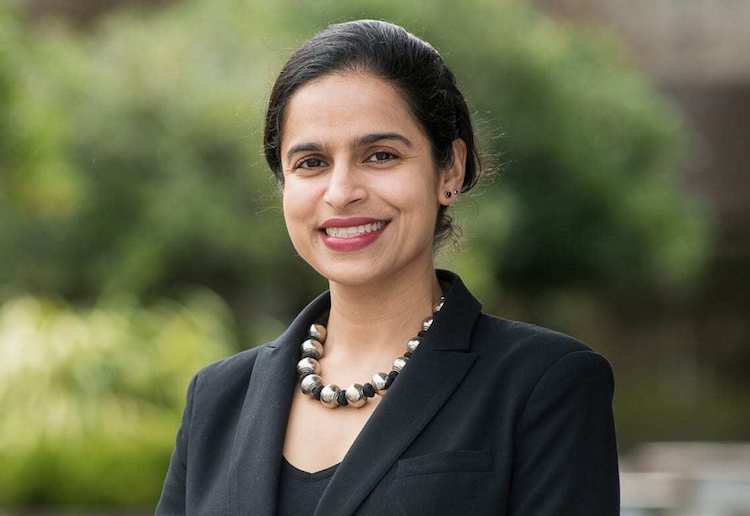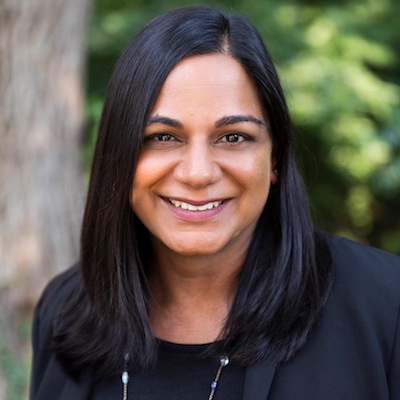How legal managers can negotiate trauma for themselves and others

Mallika Kaur.
Being in a legal management position is an unenviable task amid the unpredictable, cumulative and often traumatic toll of 2021.
Science well establishes that exposure to a trauma—a deeply distressing event that overwhelms one’s coping mechanisms—causes physiological and psychological reactions. So too does exposure to those directly affected by trauma. “Vicarious trauma” can involve an inner transformation of an individual’s beliefs about the world, personal relationships and professional worth.
How might managers in the legal profession redefine their leadership styles to listen and plan for primary and secondary trauma responses—in themselves and others? In a profession where we learn early to exude grit, how might leaders take breaks to heal when needed (recognizing that hurt people often hurt others)?
I spoke with Monika Kalra Varma in July. She has led teams in various legal contexts, including those that posed threats to personal and staff safety. Through her work at the Robert F. Kennedy Center for Justice and Human Rights, Varma has a unique perspective into the trauma that international human rights advocates may carry home. Domestically, she’s overseen attorneys in practice areas at the D.C. Bar Pro Bono Center. She led the Lawyers’ Committee for Civil Rights of the San Francisco Bay Area during a challenging time, and this reinforced the importance Varma places on promoting trauma awareness and well-being. Varma left the LCCRSF shortly after this interview took place; she is now working on a writing project.
Mallika Kaur: Could you take us back a decade and share how you were introduced to trauma responses as an attorney?
 Monika Kalra Varma.
Monika Kalra Varma.
Monika Kalra Varma: I spent most of my career working in international human rights. In 2010, I was leading the human rights center at RFK Human Rights. We had a number of crises: the earthquake in Haiti, where I had personally worked for several years; death threats against human rights defenders we partnered with; and then a few of us traveled to an occupied territory where we were personally in danger. … We were being followed, our rooms were being searched; … we were not safe and ended the delegation. When I returned home, I started having panic attacks. I was convinced that the people targeting us abroad were going to come to my home. I couldn’t sleep. I learned later that I was experiencing a form of [post-traumatic stress disorder]. What I didn’t expect is that members of our team who were not traveling with us were experiencing similar effects of trauma. … Team members who were supporting us in D.C., who knew of the danger we were in and helped us get home, were also having trouble sleeping and experiencing extreme anxiety. That is when I first learned about the term “vicarious trauma.” I was put in touch with an expert who came in to train our team on vicarious trauma. We learned what it did to our nervous systems, how to build better supports in the workplace to manage it, and what the warning signs were. It was eye-opening. I looked back on my career and realized I had experienced varying degrees of vicarious trauma several times but hadn’t understood what was happening.
Mallika Kaur: How did understanding these neurobiological reactions impact your approach, especially as a manager?
Monika Kalra Varma: For many years after that experience, I was hyperaware of vicarious trauma and afraid of when it might appear again. I was trying to figure out how to prevent it from happening to me and those I worked with. I also began talking a lot about it—trying to share my experiences with newer attorneys and law students so they were equipped to see it and address it. My approach today is different. I expect it. My mind shifted from fear-based avoidance to proactively and practically integrating spaces and practices to process and address vicarious trauma across the organizations I’ve worked with. At Lawyers’ Committee for Civil Rights of the San Francisco Bay Area, throughout the last administration, we faced constant aggressive oppressive policies targeting the communities we work with. Whether we were working with separated families, immigrants who had been abused in detention centers, or protesters hurt by the police during the uprisings for racial justice, we didn’t look away. We brought our full selves—and our full hearts—into this work. Vicarious trauma is often a product of this approach.
Mallika Kaur: What do you do in your office that is responsive to individual staff needs? Supervisors may find themselves shying from certain personal conversations out of concerns about professional boundaries. How do you handle that?
Monika Kalra Varma: My approach at LCCRSF has been to create a culture of care and support. It sounds trite, but I truly love our staff, and that is what I try to lead with. In addition to the secondary trauma that comes with our work, our teams [have] experienced their own direct trauma. Many of our staff and their families are a part of communities that were targeted by the last administration or by systems in general. Not to mention COVID. There were layers upon layers of trauma. We talk about trauma, we talk about the impact the work and world events are having on us. We have had several staff gatherings over the last four years to discuss and process what was happening in our country. Our senior staff attorneys check in on the status of the work and the well-being of their teams on a regular basis. We’ve held a vicarious trauma training so our staff was familiar with the impact and signs. We know collectively that we are not succeeding if the work is going well but our teams are struggling. There is often concern about how focusing on personal well-being impacts efficiency. Our bigger issue was getting our staff to take time off. … The question about being professional and not crossing into a personal space is an ongoing conversation. We name it. We absolutely cross lines into checking on people’s well-being, but it has become part of the officewide conversation, and we are also clear about boundaries for those who are not comfortable having those conversations, and we ensure that most spaces and practices are optional. During COVID, we started a wellness fund which could be used for therapy or wellness activities and support. … These are really simple things, but the impact has been that our staff know that we truly prioritize their well-being.
Mallika Kaur: In your experience of shifting from international to domestic work within the U.S., how does the physical distance from the affected communities affect the lawyer’s emotional “distance” and well-being?
Monika Kalra Varma: When I was partnering with human rights defenders in other parts of the world, sometimes the trauma felt worse because our imaginations amplified the dangers they were facing. And yet we are still living in communities far away from that—and for the most part, our immediate surroundings felt “safe.” The vicarious trauma was real, but I feel like I was able to process it differently because of that distance. Focusing on U.S.-based civil rights work over the last four years has been different. The distance doesn’t exist. It is harder to create space for ourselves because we are living in the midst of COVID, we are out in the streets during the racial uprisings and are part of the communities that were so viciously targeted by the last administration.
Mallika Kaur: Have you ever found yourself taking breaks because the work is very heavy and hard?
Monika Kalra Varma: I remember facilitating a post-election conversation [in December 2020] and afterwards feeling a level of exhaustion that is hard to describe … like I was moving, walking through sand. … I shared this with some fellow executive director friends who gently (not so gently) encouraged me to take a few weeks off. My first reaction was that it would be impossible to take more than a few days off, but of course that wasn’t true. My LCCRSF leadership team completely took over, and I truly had the space to turn off. It was so important for my personal well-being, but what I didn’t realize is that by modeling self-care, it helped others take time off that they needed as well.
Mallika Kaur: What is your greatest learning from your approach to trauma?
Monika Kalra Varma: I believe we must live the values we fight for externally—and part of that is creating spaces where we treat each other with love and support. I deeply believe it is also critical for the larger human rights movement. We can continue fighting against the worst policies while carrying a high level of stress and trauma. In fact, most advocates are quite effective at continuing to work regardless of the personal impact it is having on us. My greatest learning is that when we focus on wellness we can do more than fight—we can also imagine. When we acknowledge, process and heal what is coming up for us, we become more creative and impactful human rights advocates.
Mallika Kaur is a lawyer and writer who focuses on human rights, with a specialization in gender and minority issues. She is the author of the new book Faith, Gender, and Activism in the Punjab Conflict: The Wheat Fields Still Whisper. She teaches social justice classes at the University of California at Berkeley School of Law.



